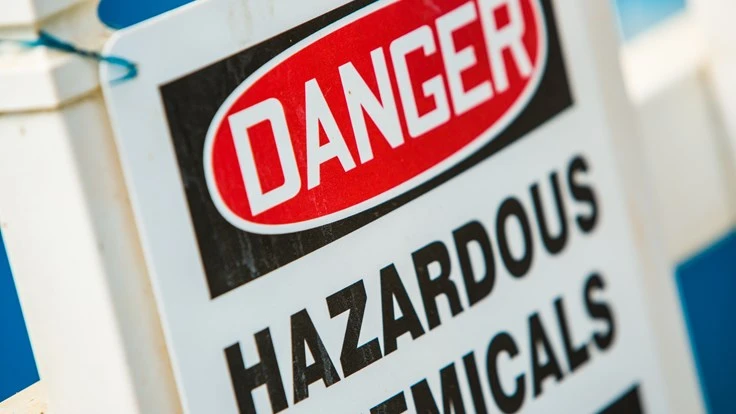
Personal protection equipment – also known as PPE – should be easily accessible for greenhouse employees, says Zach Bruce, a representative for Hortica®, a brand of the Sentry Insurance Group. Some of the common PPE types that should be available include safety eyewear, gloves for safe chemical handling and respirators. Suits and chemical-resistant boots are also common.
There are also some PPE-related OSHA standards growers must keep in mind.
“OSHA requires growers to have a respirator program,” Bruce says. “That would also require anyone who uses a respirator to visit a licensed healthcare professional to make sure the person wearing the respirator isn’t at risk for any extra health risk because [the respirator] does put a strain on the body.”
Why PPE is necessary
For employees working in the greenhouse, PPE is necessary largely because of contact with pesticides, cleaning materials and other potentially harmful chemicals.
“It depends on what a grower is doing,” Bruce says. “Obviously, anyone that is mixing or handling pesticides is going to have to have training specific to that.”
Bruce recommends that employees are trained on how to properly handle chemicals as part of their initial training, even if the employee enters the job with prior experience handling chemicals. He adds that the Environmental Protection Agency (EPA), under the Worker Protection Standard (WPS), requires employers to train employees who will enter treated areas or areas that have been treated in the last 30 days.
The WPS includes two types of training. The first is worker training that is basic pesticide awareness for people who work in the greenhouse, but are not directly involved in handling, applying, mixing pesticides, and/or early entry workers. For those directly handling pesticides and/or early entry workers, the required training includes an overview of PPE and what types of PPE are the correct choice for each situation, how not to contaminate it and more.
How to properly store PPE
Bruce says PPE should be stored away from where pesticides are stored. This is because PPE could become contaminated – and thus useless – if stored in the same space as pesticides or other chemicals. Bruce says Hortica recommends storing PPE in a cabinet or closed container. It should also be cleaned every time it is taken off before being stored for future use. Respirators, for instance, should be decontaminated after each use.
If something does go wrong, growers must be prepared. In January, the EPA revised the WPS regulation and added the following requirement pertaining to eye wash stations. When a product requires protective eyewear for handlers and/or when using a closed system under pressure, provide the following in mixing and loading areas: a system that can deliver gently running water at 0.4 gallons per minute for at least 15 minutes or 6 gallons of water in containers suitable for providing a gentle eye-flush for about 15 minutes.
Photo: Laura Watilo Blake
Hortica® property and casualty coverages are underwritten, and loss control services are provided, by Florists' Mutual Insurance Company and Florists' Insurance Company, members of the Sentry Insurance Group. For more information, visit hortica.com. Policies, coverages, benefits and discounts are not available in all states. See policy for complete coverage details.
This document is of a general nature and is not intended to address the circumstances of any particular individual or entity. No one should act on the information contained in this document without advice from a local professional with relevant expertise.
77-57 24001935 6/14/17
Latest from Greenhouse Management
- Anthura acquires Bromelia assets from Corn. Bak in Netherlands
- Top 10 stories for National Poinsettia Day
- Langendoen Mechanical hosts open house to showcase new greenhouse build
- Conor Foy joins EHR's national sales team
- Pantone announces its 2026 Color of the Year
- Syngenta granted federal registration for Trefinti nematicide/fungicide in ornamental market
- A legacy of influence
- HILA 2025 video highlights: John Gaydos of Proven Winners





